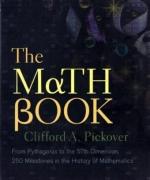|
This section contains 5,342 words (approx. 18 pages at 300 words per page) |

|
SOURCE: S. K. Heninger, Jr., "Pythagoras' School and Biography," in Touches of Sweet Harmony: Pythagorean, Cosmology, and Renaissance Poetics, The Huntington Library, 1974, pp. 19-44.
In the following essay, Heninger recounts perceptions of Pythagoras and his thought from the Renaissance.
In the development of Western philosophy as the renaissance saw it the sect of Pythagoras had played a definite and important role, a role much more important than is generally conceded today. For Ralph Cudworth, in fact, "Pythagoras was the most eminent of all the ancient Philosophers." While such praise might be excessively generous—the myopic view of a Cambridge enthusiast in the mid-seventeenth century—there is no question about the reverence accorded Pythagoras and the long line of disciples that followed him down through antiquity. The two best known schools of classical philosophy, for the renaissance as for us, were the Academy of Plato and the Lyceum of...
|
This section contains 5,342 words (approx. 18 pages at 300 words per page) |

|


